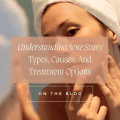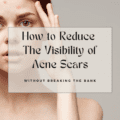
Ashwagandha (Withania somnifera), often called Indian ginseng, has been used for over 3,000 years to relieve stress, increase energy levels, and improve concentration. Its roots and berries are rich in withanolides, believed to account for the herb’s medicinal properties.
Can ashwagandha cause acne? This question stirs the curiosity of many individuals seeking natural remedies for their skin woes. Ashwagandha, a revered herb in Ayurvedic medicine, has long been touted for its stress-reducing properties, but its effects on acne-prone skin are less understood and warrant a deeper exploration.
Acne: More Than Skin Deep

Far from being a mere cosmetic concern, acne is a complex medical condition that emerges from the confluence of genetic predisposition, dietary habits, psychological stress, and a delicate balance of hormones. It transcends the bounds of adolescence, often persisting or even initiating in adulthood, leading to a widespread misconception that acne solely plagues teenagers.
The genetic component of acne is significant; our DNA can dictate the responsiveness of our skin to various triggers. Those with a family history of acne may find themselves more susceptible to experiencing severe or persistent forms of the condition. This predisposition doesn’t doom one to a life of breakouts but rather calls for a tailored approach to skincare and medical intervention. Diet also plays a crucial role in skin health.
Foods with a high glycemic index, for example, can spike blood sugar levels, leading to inflammation and hormonal fluctuations that can exacerbate acne symptoms. Dairy intake has also been scrutinized, with some studies suggesting a correlation between milk products and increased acne severity.
On the other hand, a diet rich in whole foods, antioxidants, and omega-3 fatty acids may offer a protective effect, promoting skin health and resilience against acne. Stress is another significant factor in the acne equation. It triggers the release of cortisol, a hormone that can increase oil production in the skin’s sebaceous glands, providing a fertile ground for acne to flourish.
Managing stress through mindfulness practices, regular physical activity, and adequate sleep is not just beneficial for mental health but can also manifest as clearer, healthier skin.
Lastly, hormonal imbalances play a critical role in the development of acne. Androgens, the hormones typically associated with male traits and reproduction, can increase in both men and women during various life stages, such as puberty, menstrual cycles, and times of intense stress, leading to greater oil production and, consequently, more acne.
Stress and Skin: The Ashwagandha Connection
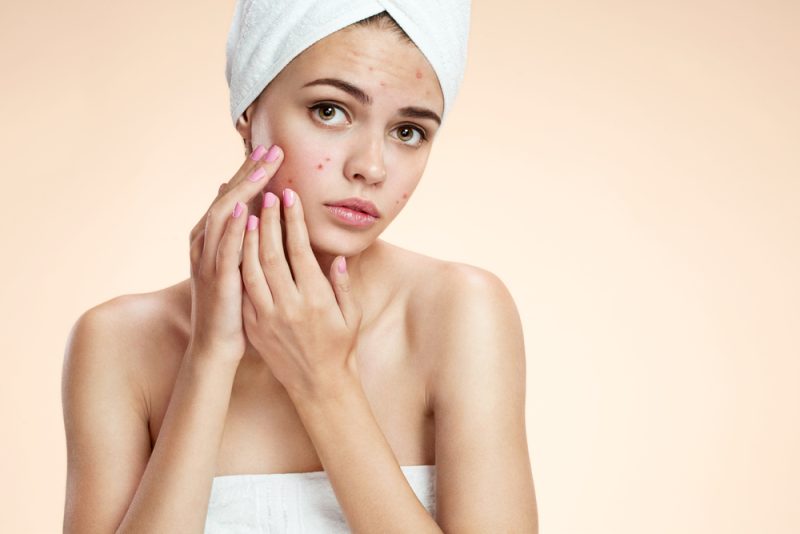
The intricate interplay between psychological stress and skin health is a subject of increasing study, with evidence mounting on how the stress experienced by the mind can manifest as turmoil on the skin. When the body is under stress, it releases cortisol, commonly known as the “stress hormone.” Elevated cortisol levels can lead to a surge in sebum production from the skin’s sebaceous glands, setting the stage for acne flare-ups.
Enter ashwagandha, an adaptogenic herb with roots in ancient Ayurvedic practices, hailed for its stress-relief capabilities. The adaptogenic nature of ashwagandha means it strives to biologically balance your stress response, acting where needed to help stabilize your body’s processes. By potentially tempering the body’s stress response, ashwagandha could indirectly influence the activity of the sebaceous glands, thereby mitigating one of the potential triggers of acne. Moreover, the reduction of stress levels through ashwagandha supplementation has been the subject of various scientific inquiries.
By potentially diminishing the overall cortisol levels in the body, this herb may not only improve mental well-being but also support the healing and prevention of stress-induced acne. It suggests that the daily battles with stress do not necessarily have to spell disaster for skin health if ashwagandha is part of one’s wellness toolkit.
Furthermore, by contributing to a more regulated sleep cycle and improved sleep quality—thanks to its calming properties—ashwagandha may further alleviate stress and its cutaneous consequences. Good quality sleep is vital for skin regeneration and repair, thus adding another layer to ashwagandha’s therapeutic potential in managing stress-related skin conditions. However, it is important to note that the relationship between ashwagandha and skin health is complex and multifaceted.
While the herb has been celebrated for its adaptogenic properties, its impact on hormonal balance must be considered, especially since acne can be a hormone-related issue. Therefore, while ashwagandha could offer a beacon of hope for stress-related acne, it is not a one-size-fits-all remedy and should be approached with an understanding of its holistic impact on the body.
Supplements for Acne Prone Skin
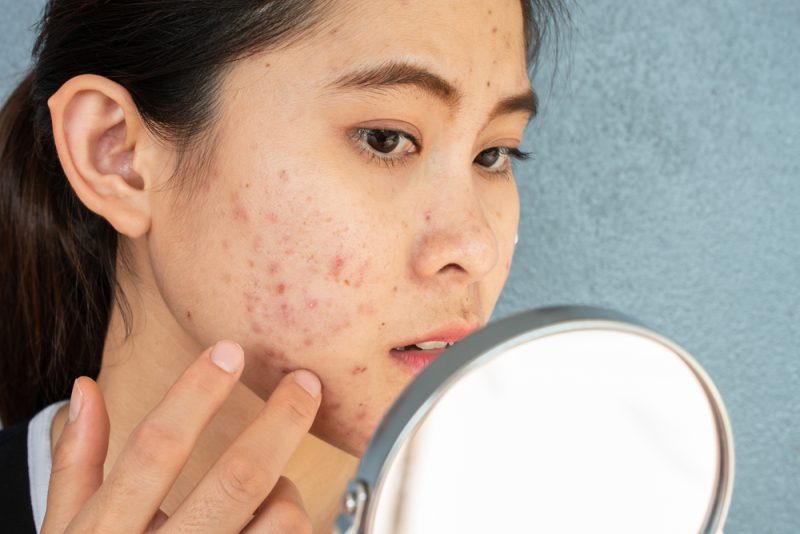
The modern pursuit of a blemish-free complexion has led to the innovation of numerous supplements, among which Pure Health Research’s Acne Clear stands out. This meticulously crafted supplement is composed of a synergy of natural ingredients, each selected for their skin-enhancing properties. At the heart of its formulation lies Zinc Picolinate and Selenium, two minerals renowned for their skin-supporting benefits, alongside a carefully curated proprietary blend that’s tailored to bolster skin health from within.
Zinc Picolinate, a highly absorbable form of zinc, is celebrated for its anti-inflammatory properties and its vital role in skin repair and regeneration. By supporting the body’s immune function, this mineral helps to reduce the inflammatory response that can lead to the redness and swelling associated with acne. Selenium complements zinc by protecting the skin cells from oxidative stress and damage due to its potent antioxidant capacity. This can be particularly beneficial for those who are navigating the complex challenges of acne-prone skin, as oxidative stress is a known aggravator of acne symptoms.
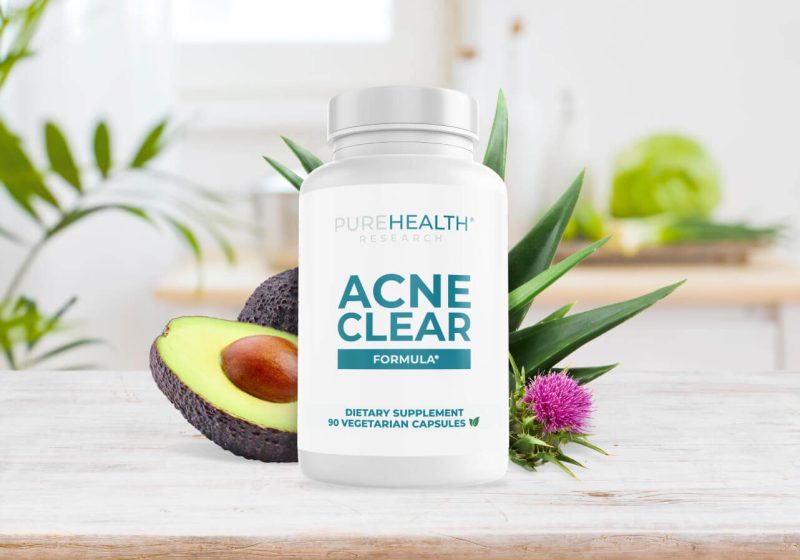
In Conclusion
Ashwagandha presents a promising natural ally in the quest for stress management and, by extension, could play a supportive role in maintaining skin health. Nonetheless, individuals considering ashwagandha for acne should do so with the guidance of healthcare professionals, ensuring it complements their specific health profile and skincare routine.
Understanding acne as more than a superficial skin issue is the first step in effectively managing it. Recognizing the myriad factors at play can lead to a comprehensive treatment plan that addresses not just the symptoms on the surface but also the underlying causes, paving the way for not just clearer skin, but also overall health and well-being.


